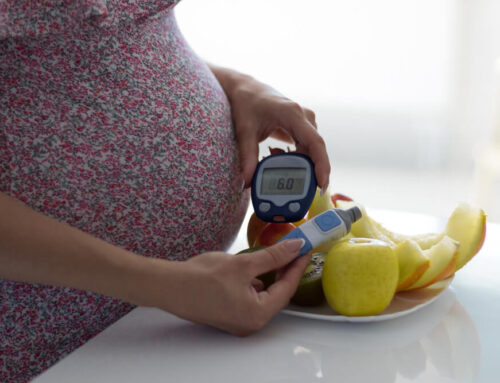The journey to motherhood is often celebrated as a time of joy and anticipation, but for some women, it can bring about unexpected challenges, including perinatal depression. In this comprehensive guide, the experts at Trogolo Obstetrics and Gynecology in Jacksonville will explore what perinatal depression is, its symptoms, common signs, and the available treatments to support women during this crucial period.
What is Perinatal Depression?

Perinatal depression, often referred to as postpartum depression when occurring after childbirth, is a mood disorder that affects women during pregnancy and the postpartum period. Contrary to common belief, perinatal depression can manifest at any point during pregnancy and up to a year after childbirth. It is essential to recognize that perinatal depression is a medical condition and not a reflection of a woman’s ability to be a good mother.
Perinatal Depression Symptoms
- Persistent Sadness or Irritability: One of the primary symptoms of perinatal depression is a persistent feeling of sadness, emptiness, or irritability that lingers beyond the typical “baby blues” period.
- Changes in Sleep Patterns: Women experiencing perinatal depression may struggle with changes in their sleep patterns, such as insomnia or excessive sleep, even when the baby is sleeping.
- Fatigue and Low Energy: Persistent fatigue and a lack of energy are common indicators of perinatal depression. Women may feel physically drained, making it challenging to perform routine tasks.
- Appetite Changes: Significant changes in appetite, whether a notable increase or decrease in food intake, can be a symptom of perinatal depression.
- Difficulty Bonding with the Baby: Women with perinatal depression may experience challenges bonding with their newborn, feeling detached or uninterested in caring for the baby.
- Feelings of Guilt or Worthlessness: Experiencing intense feelings of guilt, worthlessness, or inadequacy is a hallmark of perinatal depression, often accompanied by self-critical thoughts.
- Withdrawal from Activities: Women may withdraw from activities they once enjoyed, isolating themselves from friends and family.
Signs of Perinatal Depression
Prolonged Sadness
If feelings of sadness persist for more than two weeks or become increasingly intense, it may be a sign of perinatal depression.
Interference with Daily Functioning
When symptoms interfere with daily functioning, such as the ability to care for oneself or the baby, it is crucial to seek professional support.
Thoughts of Self-Harm or Harming the Baby
Any thoughts of self-harm or harming the baby should be addressed immediately. These thoughts are serious and require urgent attention from healthcare professionals.
Lack of Interest in the Baby
A notable lack of interest in the baby, coupled with difficulty forming an emotional connection, is a red flag for perinatal depression.
Social Isolation
Withdrawing from social interactions and isolating oneself from friends and family can be indicative of perinatal depression.
Causes of Perinatal Depression
- Hormonal Changes: Fluctuations in hormone levels, particularly a rapid drop in estrogen and progesterone after childbirth, can contribute to the onset of perinatal depression.
- History of Mental Health Conditions: Women with a history of depression, anxiety, or other mental health conditions may be at an increased risk of perinatal depression.
- Stressful Life Events: Significant life stressors, such as financial difficulties, relationship problems, or a challenging pregnancy, can contribute to the development of perinatal depression.
- Lack of Support: Insufficient social support or a lack of a strong support system during pregnancy and the postpartum period can increase the risk of perinatal depression.
Perinatal Depression Treatments
Therapy and Counseling
In addition to cognitive-behavioral therapy (CBT) and interpersonal therapy (IPT), other therapeutic modalities may be explored to cater to individual needs. Mindfulness-based interventions, dialectical behavior therapy (DBT), and psychodynamic therapy are examples of alternative approaches that can provide women with a diverse set of tools to manage perinatal depression. Personalized counseling plans allow for tailored strategies that resonate with each woman’s unique experiences and challenges.
Medication Management
While SSRIs are commonly prescribed for perinatal depression, it’s crucial to highlight that medication management involves ongoing assessment and potential adjustments. Individual responses to medications vary, and healthcare providers work closely with women to monitor side effects, assess efficacy, and make informed decisions about the continuation or adjustment of medication. Open communication with healthcare providers ensures that the treatment plan aligns with the woman’s preferences and health considerations.
Support Groups
The role of support groups in perinatal depression treatment cannot be overstated. In addition to providing a sense of community, these groups serve as platforms for emotional expression, shared experiences, and mutual understanding. Facilitated by mental health professionals or peer-led support groups, create a safe space for women to navigate the challenges of perinatal depression together. Virtual support groups, accessible from the comfort of one’s home, further break down barriers to participation and foster connection among mothers facing similar struggles.
Holistic Lifestyle Changes
Beyond the traditional triad of exercise, diet, and sleep, holistic lifestyle changes encompass a broader spectrum of self-care practices. Integrative approaches such as yoga, meditation, and acupuncture may complement conventional treatments, promoting relaxation and emotional well-being. Nutritionists and wellness experts can collaborate with mental health professionals to create personalized plans that address nutritional deficiencies, optimize physical health, and support mental resilience during the perinatal period.
Inpatient Treatment Programs
Inpatient treatment programs offer a comprehensive and structured approach to managing severe perinatal depression. These programs provide a supportive environment where women can receive intensive care, including individual and group therapy, medication management, and 24/7 monitoring. Inpatient treatment programs are designed to address immediate safety concerns, stabilize symptoms, and equip women with coping skills to navigate the challenges they may face upon discharge. Collaborative efforts between psychiatric professionals, obstetricians, and other healthcare providers ensure a holistic and integrated approach to care.
Telehealth Services

Recognizing the evolving landscape of healthcare accessibility, telehealth services have become increasingly valuable in perinatal depression treatment. Virtual counseling sessions, support group meetings, and consultations with healthcare providers allow women to access care remotely. This is particularly beneficial for those facing geographical or logistical barriers, providing a flexible and convenient means of receiving support during the perinatal period.
Comprehensive and individualized perinatal depression treatment goes beyond conventional methods, incorporating diverse approaches that address the multifaceted nature of the condition. By embracing a combination of therapeutic modalities, medication management, peer support, holistic lifestyle changes, and specialized inpatient programs, women can navigate their journey towards recovery with a nuanced and tailored approach. Collaborative decision-making between healthcare providers and women ensures that treatment plans align with individual preferences, fostering a sense of empowerment and resilience throughout the perinatal period.
If You Need Help
Perinatal depression is a common and treatable condition that requires prompt attention and support. Recognizing the symptoms and signs, understanding the potential causes, and exploring available treatments can empower women and their support networks to take proactive steps toward mental health and well-being during this significant period of their lives. Seeking help early is crucial, and women experiencing perinatal depression should reach out to healthcare professionals for comprehensive assessment and guidance. Remember, with the right support, recovery is possible, and every woman deserves the opportunity to enjoy a positive and fulfilling motherhood experience.
That said if you have any questions or concerns or need help with topics such as “how to explain postpartum depression to my husband” or simply looking for exceptional obstetric care in Jacksonville, Florida, feel free to schedule an appointment with our experts.




